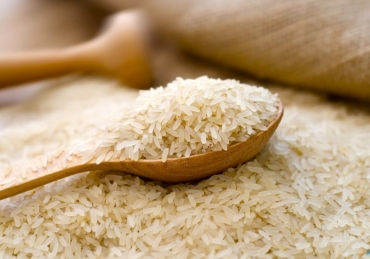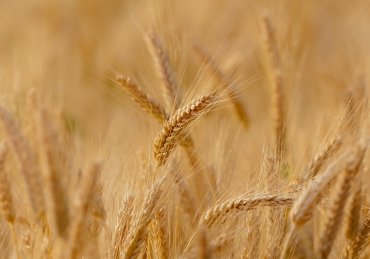Fidyah Overview
Question
Please explain what is Fidyah, why is it given, what is it given for, how much should be given, and if someone has missed Ṣalāh and fasts for many years, how will it be calculated.
بسم الله الرحمن الرحیم
Answer
According to the Quran and Ḥadīth, Fidyah is a specific form of donation that is given to the poor in lieu of missed fasts. The jurists have also extended this to missed Ṣalāh because Ṣalāh is from the sole bodily acts of worship (ʿibādāt badaniyyah) similar to fasting. As such, the heirs cannot make up for them by performing those acts, they can only be compensated for via Fidyah. On the other hand, Zakat and Hajj can be compensated for by donating the Zakat and performing Hajj on their behalf.
If a deceased had made a bequest (Waṣiyyah) for Fidyah to be given for their missed Ṣalāh and fasts, it is necessary upon the heirs to donate this to the poor from one third of the wealth. If the deceased did not make any such bequest, it is not necessary. However, it is strongly recommended that Fidyah is donated on their behalf to relieve them from their obligations to Allah Almighty.
Ṣalāh and fasting in Ramadan are from among the most important obligations of Islam, and Ṣalāh is the first thing a person will have to give account for in the hereafter. It is therefore strongly recommended, even if the deceased did not make a bequest, for the heirs to donate Fidyah on their behalf for any missed Ṣalāh or fasts. Likewise, if Zakat or Hajj was necessary upon them and they did not discharge these obligations, the heirs should also arrange for this.
On one occasion, a man came to the Messenger of Allah ﷺ and said: “O Messenger of Allah, my mother has died and she has one month’s fasts due on her, should I complete them on her behalf?” The Prophet ﷺ said, “If there was debt on your mother, would you not pay it?” The man said: “Yes.” The Prophet ﷺ said: “Then, the debt of Allah is more deserving of being paid off” (Ṣaḥīḥ Muslim, 1148)
The Fidyah amount is the same as Ṣadaqat al-Fiṭr, ½ Ṣāʿ of wheat. This amount or its value must be given for each missed Ṣalāh and fast. The value is determined by the price of wheat in the location of the deceased. If, however, the deceased has lots of missed Ṣalāh and fasts, it is possible to arrange in India or elsewhere for the actual wheat or wheat flour to be given to the poor. This would be cheaper and fulfil the obligation. In this scenario, the prescribed quantity (½ Ṣāʿ) of wheat or wheat flour must be given to the poor.
Fidyah is to be given for the five Fard (obligatory) Ṣalāh. In addition, it is also to be given for Witr Ṣalāh which is Wajib (necessary) in the Ḥanafī school. Therefore, if someone missed Ṣalāh and fasts of one solar year, his calculation is (1 x 365 x 6) + (1 x 30) = 2220 Fidyas. For women, the number of days for the Ṣalāh can be reduced according to their menses. If someone would occasionally perform Ṣalāh and occasionally fast, an estimate should be made, and calculations made accordingly.
Likewise, if Ṣalāh and fasting were not necessary upon someone, for example, due to mental health and extreme dementia towards the end of their lives, Fidyah does not have to be given for the missed Ṣalāh and fasts of this period.
Finally, if someone is alive, they cannot give Fidyah for their missed Ṣalāh whilst they are alive. They are required to perform the missed Ṣalāh and must make every effort to do so. This not least because Fidyah for Ṣalāh is not explicitly mentioned in the Quran and Sunnah, it is something the jurists have deduced based on analogy. It is therefore necessary upon those who are alive to perform the missed Ṣalāh. If they are unable to do so, then they should make a bequest (Waṣiyyah) for Fidyah. The same principle applies to fasting except that if one is unable to make up for their missed fasts at any point in the future, Fidyah can be given whilst one is alive. However, if they can make up for their fasts at any point in the future, Fidyah will not relieve them of their obligation, and they will be required to fast even if Fidyah has been given.
قال الله تعالى: وعلى الذين يطيقونه فدية طعام مسكين. وعن ابن عباس رضي الله عنهما قال: جاء رجل إلى النبي صلى الله عليه وسلم، فقال: يا رسول الله إن أمي ماتت وعليها صوم شهر، أفأقضيه عنها؟ قال: نعم، قال: فدين الله أحق أن يقضى، رواه البخاري (١٩٥٣) ومسلم (١١٤٨)۔
وقال محمد في الأصل (٢/١٦٥): قلت: فإن أوصى أبوه حين مات أن يقضي عنه كيف تأمر أن يصنع؟ قال: يطعم عنه مكان كل يوم نصف صاع من حنطة. قلت: فكم الصاع؟ قال: قفيز بالحجاجي، وهو ربع الهاشمي، وهو ثمانية أرطال، انتهى. وقال السرخسي في المبسوط (٣/٩٠): وعلى هذا إذا مات وعليه صلوات يطعم عنه لكل صلاة نصف صاع من حنطة. وكان محمد بن مقاتل يقول أولا: يطعم عنه لصلوات كل يوم نصف صاع على قياس الصوم، ثم رجع فقال: كل صلاة فرض على حدة بمنزلة صوم يوم، وهو الصحيح، انتهى. وقال المرغيناني في الهداية (٢/٣٥٩، فتح القدير): والصلاة كالصوم باستحسان المشايخ، وكل صلاة تعتبر بصوم يوم، هو الصحيح، انتهى. وقال الحصكفي في الدر المختار (٢/٧٢): (ولو مات وعليه صلوات فائتة وأوصى بالكفارة يعطى لكل صلاة نصف صاع من بر) كالفطرة (وكذا حكم الوتر) والصوم، وإنما يعطي (من ثلث ماله) ولو لم يترك مالا يستقرض وارثه نصف صاع مثلا ويدفعه لفقير ثم يدفعه الفقير للوارث ثم وثم حتى يتم (ولو قضاها ورثته بأمره لم يجز) لأنها عبادة بدنية (بخلاف الحج) لأنه يقبل النيابة، انتهى۔
وقال محمد في الموطأ (٤٨٣): لا بأس بالحج عن الميت وعن المرأة والرجل إذا بلغا من الكبر ما لا يستطيعان أن يحجا، وهو قول أبي حنيفة والعامة من فقهائنا رحمهم الله تعالى، انتهى. وقال الحاكم الشهيد في الكافي المطبوع في الأصل (٢/٥١١) والمبسوط (٤/١٦١): وإذا حج الرجل عن أبيه أو أمه حجة الإسلام من غير وصية أوصى بها الميت قال: يجزيه إن شاء الله تعالى، بلغنا عن النبي صلى الله عليه وسلم أنه قال في ذلك: أرأيت لو كان على أبيك دين فقضيته أما قبل منك، فالله أحق أن يقبل، انتهى۔
وقال قاضي خان في شرح الزيادات (٥/١٥٦٠): العبادات ثلاثة أنواع، منها بدنية لا تعلق لها بالمال كالصوم والصلاة، فلا تجري فيها النيابة بحال. ومنها ما يتعلق بالمال كالزكاة والصدقات، يجوز فيها النيابة على كل حال. ومنها ما يتأدى بالبدن ولها تعلق بالمال أيضا، كالحج، تجوز فيها النيابة عند العجز، ولا تجوز عند القدرة، لأن لها حظا من الشبهين، فكا حكمها بين حكمين. هذا هو ظاهر مذهب أصحابنا، فقد ذكر محمد رحمه الله فيمن يحج عن غيره حجة الإسلام جاز عن المحجوج به، انتهى۔
وقال الكاساني في البدائع (٢/١٠٥): وأما وجوب الفداء فشرطه العجز عن القضاء عجزا لا ترجى معه القدرة في جميع عمره، فلا يجب إلا على الشيخ الفاني، ولا فداء على المريض والمسافر ولا على الحامل والمرضع وكل من يفطر لعذر ترجى معه القدرة، لفقد شرطه، وهو العجز المستدام، وهذا لأن الفداء خلف عن القضاء، والقدرة على الأصل تمنع المصير إلى الخلف، كما في سائر الأخلاف مع أصولها، ولهذا قلنا: إن الشيخ الفاني إذا فدى ثم قدر على الصوم بطل الفداء، انتهى۔
وقال ابن عابدين في رد المحتار (٢/٧٢): ثم اعلم أنه إذا أوصى بفدية الصوم يحكم بالجواز قطعا، لأنه منصوص عليه. وأما إذا لم يوص فتطوع بها الوارث فقد قال محمد في الزيادات: إنه يجزيه إن شاء الله تعالى، فعلق الإجزاء بالمشيئة لعدم النص، وكذا علقه بالمشيئة فيما إذا أوصى بفدية الصلاة، لأنهم ألحقوها بالصوم احتياطا، لاحتمال كون النص فيه معلولا بالعجز، فتشمل العلة الصلاة، وإن لم يكن معلولا تكون الفدية برا مبتدأ يصلح ماحيا للسيئات، فكان فيها شبهة، كما إذا لم يوص بفدية الصوم، فلذا جزم محمد بالأول ولم يجزم بالأخيرين، فعلم أنه إذا لم يوص بفدية الصلاة فالشبهة أقوى، انتهى۔
وقال الحصكفي في الدر المختار (٢/٧٤): ولو فدى عن صلاته في مرضه لا يصح بخلاف الصوم، انتهى۔
Allah knows best
Yusuf Shabbir
13 Ramadan 1442 / 25 April 2021
Approved by: Mufti Shabbir Ahmed and Mufti Muhammad Tahir






